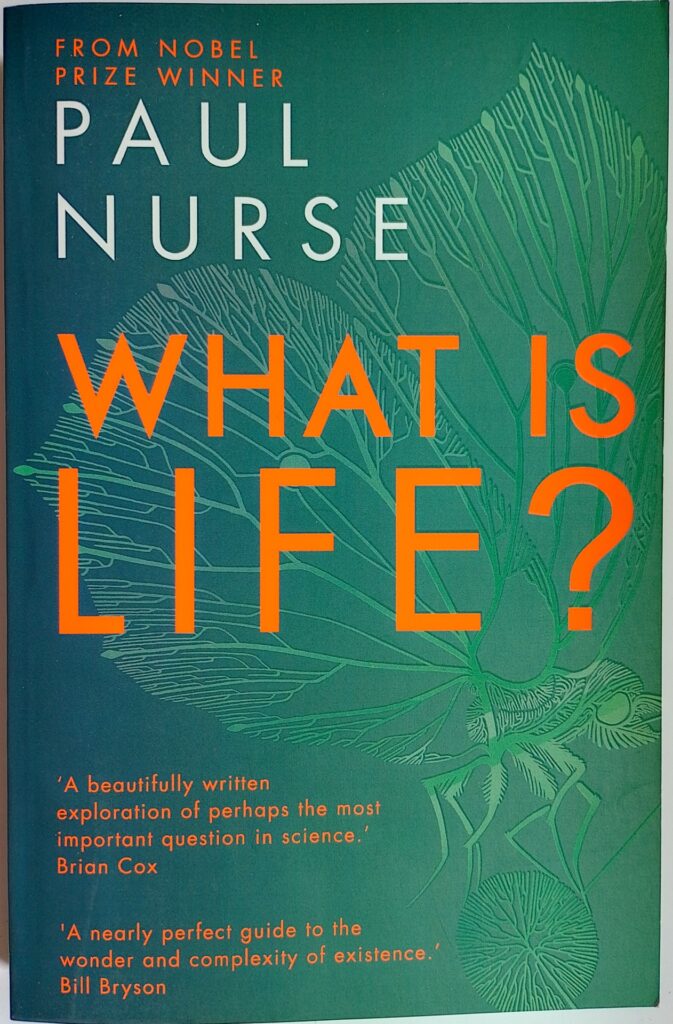First published 2020. David Fickling, paperback, 2021, pp 212, c.40,000 words.
Nurse says that this is a question that has been asked from the dawn of time, and today there is no standard definition. The book is an attempt to lay out an answer even if it leaves some loose ends. Nurse has spent his professional life researching some of the minutiae of this question and has risen to eminence in his field, sharing the Nobel Prize for Physiology or Medicine in 2001 as well as being honoured in the U.K., France and Japan for his work. No doubt he has had to give many speeches to non-specialist audiences so will have had a chance to give considerable thought on how to accessibly convey his field. This book is very largely written in non-technical language and its key messages should be clear to a wide readership.
The book is structured around five main topics which are a ladder of ideas that lead to his conclusion on what life is. The themes are the cell, the gene, evolution by natural selection, life as chemistry, and life as information. Beyond that is a chapter entitled ‘Changing the World’ which outlines some of the outcomes from the discoveries earlier described; largely medical advances, but also with implications for some industrial processes and our understanding of our environment. There is a final chapter which summarises all that has gone before and reiterates Nurse’s view on what life is as far as we currently understand it, acknowledging that there is still much we don’t know, particularly about how the brain works and gives rise to self-awareness. The book’s structure works effectively in conveying the important ideas of each of the steps, and how they build on each other.
The style of the book is chatty. There is talk of ‘our journey’, ‘you’, and ‘your’. Surprisingly, there are very few personal anecdotes or little stories to build up or frame a point; perhaps this is more a British thing than an American one. (Articles in Scientific American, for example, are nearly always framed with some personal story.) Sentences here tend to be short. Acronyms are few and clearly explained. Jargon is avoided and word use every-day. Sometimes I found this a little too much. Perhaps it comes from being produced by a publisher who’s list is otherwise entirely children’s books. It seems an odd match. Perhaps Nurse knew Fickling previously from some other context. The book is also short which helps make it an easy read. He is irritatingly fond of mentioning Nobel Prizes when referring to other scientists.
Nurse does not shy away from the more controversial aspects of the topic. He has no time for vaccine deniers, or those who would prevent any form of genetic modification. There are some very strong examples given of the benefits from vaccines and GM. He is also upset by politicians who denigrate experts who happen to counter their own poorly substantiated opinions.
Nurse’s conclusion is that life is in great part about self-reproducing and evolving, and that is crucial in understanding its persistence over at least three billion years on this planet. It also makes it different from any current form of computer system, including neural networks.
This is an excellent book for the layperson who wishes to get at least a high-level view of the substantial advances that have been made in understanding biology in recent decades. There are some very important ethical questions tied up here, and the more of us that have some familiarity with the basics the better. The book’s question also has relevance to our search for extra-terrestrial life and in sifting the wilder claims of the AI community.
© William John Graham, September 2022

